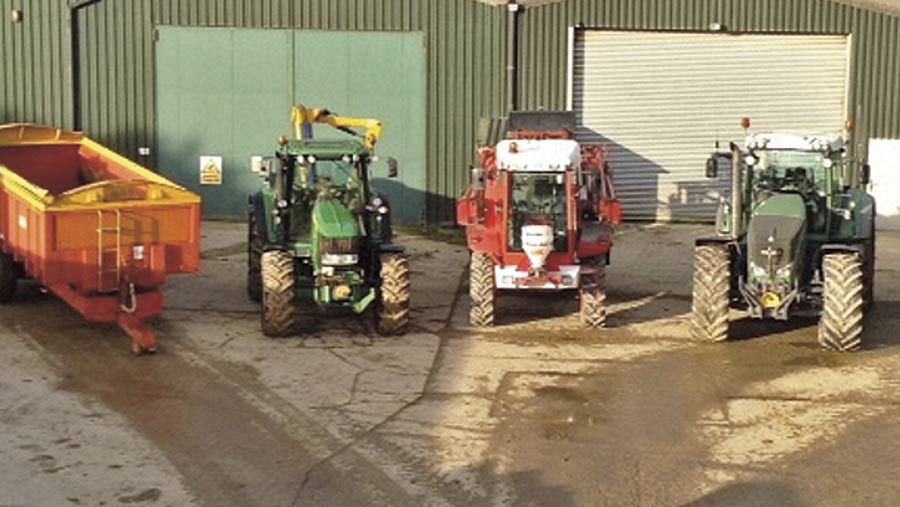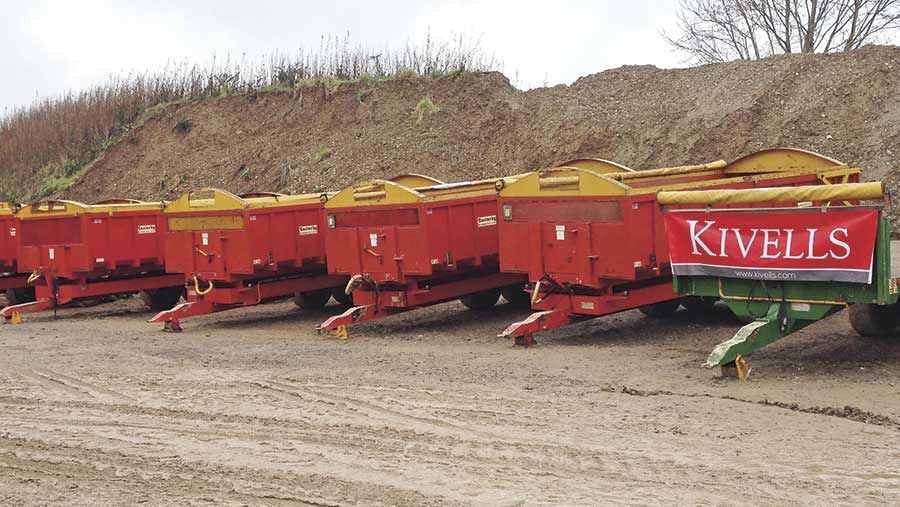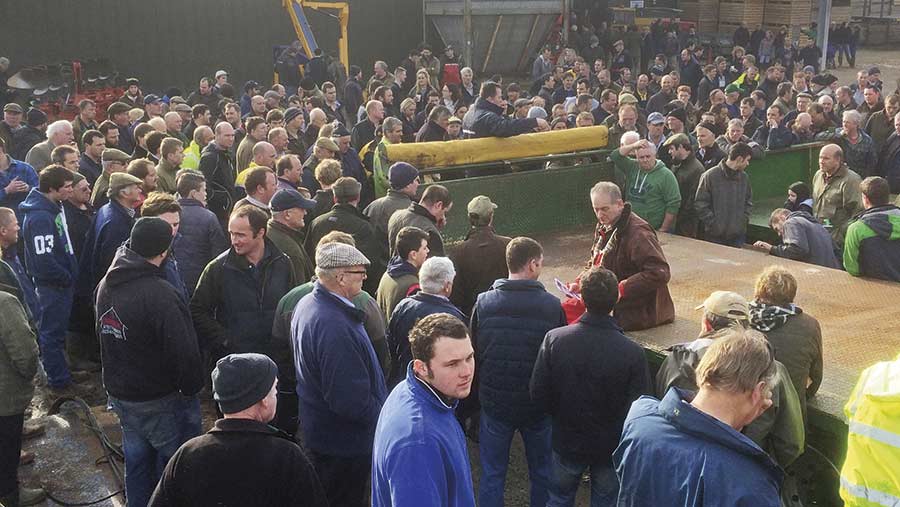At the Auctions: Second-hand machinery trade set to slow in 2017
Newer, low-houred equipment is expected to be harder to source through on-farm and collective sales through early 2017 as auctioneers report fewer sale instructions due to a more resilient mood among prospective buyers.
Despite the past year seeing record sales for several auction centres and companies based on turnover alone, trade representatives suggest more farm business owners are prepared to hold on to kit for an extra year to reduce outgoings despite the availability of low-rate finance. The one exception to this in the attachment sector.
As a parallel, this reflects the latest forecast for new car sales across the UK which, according to business analysts, were buoyant in 2016 thanks to low-cost borrowing, but are expected to slow significantly in 2017. Concern over personal expenditure is suggested to be the principle driver.
See also: Auctions see strong interest for mixed farms and grassland

© Kivells
“In the past year as a company we have seen a 36% increase in revenue and have witnessed a more upbeat atmosphere at sales than we’ve seen for a number of years,” says auctioneer James White of Kivells, based in the South West. He backs up the observations of many sale agents within agriculture.
“Farmers are willing to look at second-hand equipment where there is the suggestion it’s in working order rather than sold-as-seen, and it’s considered a viable option to buying new despite low interest rate finance being available. Added to this is the position of sterling, which continues to encourage exports.”

© Kivells
Interest in used equipment is most apparent in the £5,000-£10,000 price bracket for used tractors rather than the top-end sales for newer stock that breaches the £20,000-mark, he suggests.
Others auctioneers agree, adding it reflects the same attitude to younger used implements across both the arable and grassland sectors.
Sense of resilience
Ralph Ward of East Yorkshire-based Frank Hill & Sons says there remains a sense of resilience from prospective vendors, particularly from areas where farms are family-owned, borrowings are lower and owners are able to ride out a few bad years.
The arrival of farming entitlement cheques has eased some financial pressure for qualifying businesses, suggests the trade. Fewer sale instructions are being made due to a failing in farm finance with restructuring and retirement predominating.

© Kivells
The younger, low-houred equipment that is coming to the market is meeting good demand. Currency exchange rates continue to encourage exports, so demand is expected to remain high, adds Brian Ross of Lanark-based Lawrie & Symington.
However, auctioneers say vendors still need to be realistic with their expectations regarding reserve prices.
As an overview for early 2017, fewer sales are confirmed across Scotland, Wales, the South West and North East compared with recent years, while several large parcels are coming to the market in the Midlands and East Anglia driven principally by restructuring or retirement.

